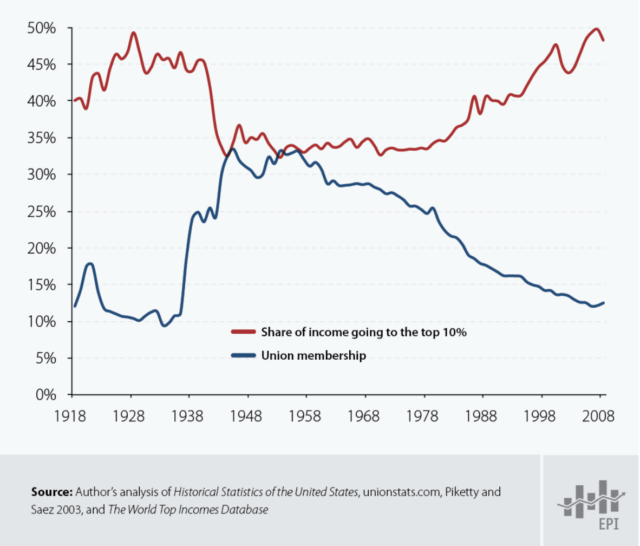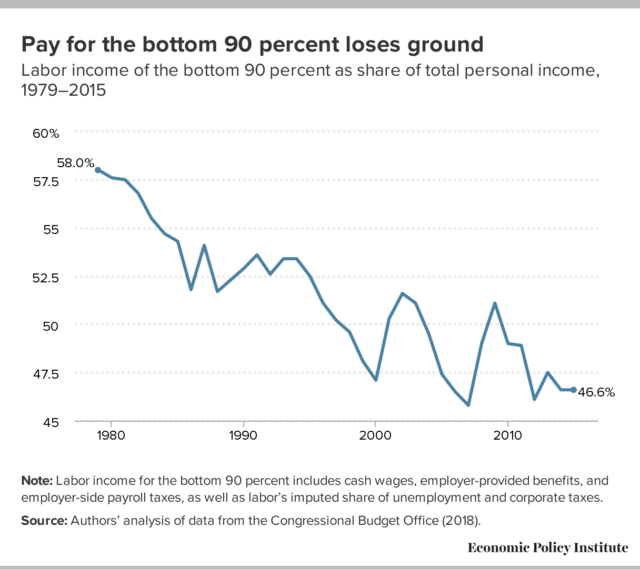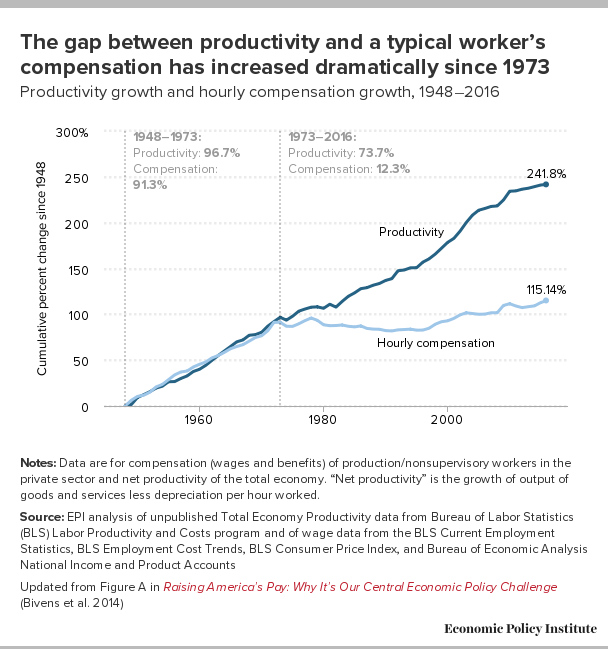Burdened and Bound: A Nation of Traumatized Workers
Noncompete agreements erode rights and impose harms, proposed ban breathes new life into economic liberty
Luke Hinrichs
December 15, 2023
Shelbie Brennen was in her late twenties when she was diagnosed with cancer. While her subsequent chemotherapy treatment took a heavy toll on her health, family, and ability to make a living, Brennen’s work failed to accommodate her situation. With two toddlers at home and in need of care, Brennen decided to make a change.
Brennen needed to work closer to her home so that she could take care of her children while still financially providing for her family. A year after being diagnosed with non-Hodgkin’s lymphoma, Brennen took a leap of faith for her family and for herself.
“I need to be there for my kids.” Brennen said to the [F]law. “For me, it was focusing on my kids more so than myself.”
Brennen left the hair salon where she had been employed for seven years and opened a small salon near her home with another hair stylist. She was looking forward to the start of an exciting, new chapter. She was going to build something, and she was going to own it. To Brennen, she was simply pursuing the American Dream.
However, Salon Development, the parent company of Brennen’s previous employer which owns over 40 hair salons in five states, filed a lawsuit against Brennen alleging she violated her noncompete agreement.
The threat of the lawsuit alone risked shuttering her new business since Brennen could not afford legal counsel as she put all of her savings into starting the business and was living below the poverty line. As a result, Brennen said she lived in constant “stress and strain.”
Brennen’s experience is not unique. Over one in five American workers, or between 36 million and 60 million private-sector workers, are subject to noncompete agreements.
Noncompete agreements are contractual obligations that typically prevent an employee from working for competing employers, starting their own business, or generally working within the same industry after their employment ends.
These restrictive agreements can disastrously transform a layoff or job departure into years of prolonged unemployment. The terms of these agreements can dictate a radius, industry, and time duration that a former employee cannot seek work. For example, one broadly restrictive noncompete agreement stated that, for two years after the last day of employment, the former employee was prohibited from “engag[ing] directly or indirectly, either personally or as an employee, associate, partner, or otherwise, or by means of any corporation or other legal entity, or otherwise, in any business in competition with Employer,” within a 100-mile radius. The worker would have to find a job either 100 miles away or in a new industry unrelated to their background and experience.
A 100-mile radius provision is not uncommon and can force unemployed workers to choose between continued unemployment or costly relocation.
Noncompetes are, at their core, tools of power with the base-level effect of restricting economic mobility and freedom to exit a job and choose where one works.
These agreements often also include specific damages for violations, which can go up to $100,000 and beyond to even $500,000. A worker can owe hundreds of thousands of dollars to their former employer for the sole act of taking a job to survive and pay the bills.
Although the scope and duration of noncompete agreements can vary, noncompetes are, at their core, tools of power with the base-level effect of restricting economic mobility and freedom to exit a job and choose where one works.
While the immediate impact of these restrictive agreements burdens the direct subject of the agreement, the harms of noncompetes are not confined to the individual. Spillover effects cause those who are not even subject to noncompetes to also experience harms. One study found that when the use of noncompete clauses by employers increases, it drives down wages for workers who are not even subject to noncompetes but work in the same state and industry. Further, workers not subject to noncompetes also, on top of lower wages, experience decreased job mobility (the ability to switch jobs) due to the rippling effects of noncompete use.
Noncompete agreements not only depress wages and obstruct job mobility, but they also trap workers in abusive, hostile work environments.
Across industries and labor markets, according to a 2022 Treasury Department report, noncompete agreements contribute to lower wages, worse benefits, poorer working conditions, lower worker mobility, lower and unequal bargaining power, and increased hiring costs for employers.
Noncompetes simultaneously lower worker bargaining power while compounding the harms of existing inequalities and oppressive work environments since vulnerable workers—those who already have diminished bargaining power such as immigrants, minority groups, and women—are more likely to be subject to these restrictively harmful agreements.

Sandeep Vaheesan – Credit: https://www.openmarketsinstitute.org
Noncompete agreements not only depress wages and obstruct job mobility, but they also trap workers in abusive, hostile work environments.
“Noncompetes effectively function as a bad boss clause. If someone is being abused or discriminated against, or otherwise mistreated under a noncompete clause, they often just have to stick it out,” said Sandeep Vaheesan, legal director of the Open Markets Institute and previously a regulations counsel at the Consumer Financial Protection Bureau.
Although it was once assumed that noncompete agreements were only imposed on highly-technical and executive level workers, reports increasingly revealed that noncompetes are deployed in industries across the economy and across the income scale, from low-wage workers to upper management and executives alike. Whether its food services, warehouse workers, hair stylists, engineers, physicians, executives, interns, or security services, companies are subjecting workers to restrictive noncompetes and imposing the harms that accompany these contractual obligations.
The Justification Narrative of Noncompete Agreements
Michael Kenny, a single-father and veteran, found employment earning $11.75 an hour as a security guard for Critical Intervention Services (CIS), a Florida private security company. After a few days of training, Kenny was assigned to patrol an apartment complex from 7 PM to 7 AM. However, he could not find overnight childcare for his daughter to accommodate his shift. Kenny resigned, ending his 13-day tenure at the company. He expected to move on to other employment opportunities, and he did.
Soon after leaving CIS, Kenny took a daytime security guard job, monitoring security cameras at a local bank and making close to $15 per hour. Kenny’s only payment from CIS was docked to repay the company for advancing him the cost of the state-required training as stipulated in his employment contract. He assumed his ties to his former employer were severed and he was free to move on, free to earn his living elsewhere.
However, Kenny’s new, higher paying job with better hours was also short-lived. CIS wrote to his new employer claiming that Kenny had violated a two-year noncompete clause, and therefore had unlawfully taken valuable proprietary information and specialized training. According to CIS, the company was protecting its interest since Kenny’s state-required classroom and field training allegedly featured specialized, proprietary expertise. Michael Kenny was then fired from his new job.

Brian Callaci
Kenny’s experience highlights the typical justification offered by companies seeking to impose and enforce noncompete agreements. The common defense of these restrictive agreements is that they are necessary to protect trade secrets and confidential information, promote innovation, and protect employer’s investment in employee training and human capital.
However, Brian Callaci, an economist whose research focuses on market structures, industrial organization, and the power dynamics between worker and employer, said to the [F]law, “employers already have trade secret laws to protect those interests. They do not need the extra tool of a noncompete, which has harmful extraneous effects on workers and the economy.”
There are many federal laws that protect employer interests in confidentiality and unauthorized use of protected trade secrets including the Uniform Trade Secrets Act and the Economic Espionage Act. There are also state laws and regulations that protect similar issues as well as common law protections of company information. The law is well-structured to protect employer and corporate interests without the need for noncompete agreements.
On the claim that noncompete clauses promote innovation, evidence supports the contrary. Researchers have generally found that noncompete clauses decrease innovation. One study found that when noncompete clauses are more enforceable, rates of entrepreneurship, patenting, and employment growth slow. Another study found that when noncompete clause enforceability is increased, the entry rate of new firms decreased by 10 percent in the technology sector and the professional, scientific, and technical services sector. An additional study established further that noncompete clauses not only inhibit new business formation but they also tend to have more negative impacts for women than for men.
The widespread deployment of noncompete clauses against workers contributes to America’s downward trend in new business formation, productivity, and technological innovation.
Additionally, if return on investment through employee retainment is the goal, “the other way of protecting the employer’s interests is for the employer to prevent workers from leaving with a carrot rather than a stick—make it a nice place to work, pay workers well, offer a pension to incentivize them to stay. There are all those other ways to do it rather than the brute force approach of a noncompete,” said Callaci.
While the common refrain is that these restrictive agreements are an essential tool to protect trade secrets, for some employers, noncompete agreements are more likely to be an essential tool to protect profit margins and preserve unequal bargaining power against workers. Researchers found that employers of low-wage workers rely on noncompete agreements more often when they lose other means of suppressing wages, for example when minimum wage laws increase, unemployment decreases, and workers enjoy a tighter labor market. The findings also show that firms will utilize noncompetes in some instances “despite the fact that the costs borne by an employee outweigh the benefits the employer receives.” Power, profits, and control are at the heart of noncompete agreements.
The underlying narrative for proponents of noncompete agreements is that workers consent to the restrictions imposed on them. The

David Seligman
Chamber of Commerce, , a pro-business lobbying organization with offices across the country, wrote in 2020, “[i]t is important to note that noncompete contracts are not unilaterally imposed on employees. They are contracts freely bargained for before or during a period of employment. The employee gains something valuable in exchange for the voluntary commitment.”
In response to this narrative of consent and contract, David Seligman, Executive Director and an attorney at Towards Justice, a nonprofit impact litigation law firm, said to the [F]law, “The notion of a purported freedom of contract is a complete fiction. It does not line up at all with the experience of workers.”
“Contract is not about consent.” Seligman continued, “contract has been weaponized, and that is what we are seeing with the noncompete—contract as a weapon to coerce and attack workers, not something they can freely negotiate and set terms for a relationship that are reasonable to them.”
Responding to the Chamber of Commerce’s claim, Callaci said to the [F]law, “employment contracts are typically take-it-or-leave-it contracts. Employment contracts are not bargained over equally, and if the Chamber wants to have contracts that are bargained for, they should be for the expansion of union rights and they should be lobbying for the PRO Act. That is the way workers will actually be able to bargain over contracts. The employer holds enormous power in the hiring process… It’s unrealistic to view these as bilateral contracts.”
Contrary to the idyllic rendering presented by the Chamber of Commerce, noncompete clauses are often included in standard-form contracts, which workers are not likely to read and are rarely negotiated over. Worsening the already uneven bargaining power at play, while these agreements are often crafted by employers’ legal counsel, only 7.9 percent of workers with noncompete clauses reported consulting a lawyer to review their contractual noncompete obligations.
“An empty stomach can make no contracts. They assent but they do not consent, they submit but they do not agree.”
For the workers living paycheck to paycheck, for the employees who depend on their income to pay their bills and put food on the table, the loss of a job opportunity is not a viable option either. Under the pressure of need and with little opportunity for meaningful choice, workers sign noncompete agreements.
As George E. McNeill, nineteenth century labor theorist, asserted, “An empty stomach can make no contracts. They assent but they do not consent, they submit but they do not agree.”
The story itself, in which two parties come to the table to negotiate over a noncompete agreement, has been observed to be more mythological than fact. Studies have found that employers do not always provide noncompete agreements in the normal contract process. Instead, it is common practice of employers to request workers agree to a noncompete after they have already accepted the employment offer and begun work—a time when a worker’s negotiating power is at an even weaker level.
Other common practices include placing the noncompete agreement among the many other boiler plate forms new employees sign on the first day of work or tucking the noncompete restriction inside a lengthy employee handbook that employees unconditionally agree to abide by as a condition of their employment. As such, researchers at the Economic Policy Institute found that large numbers of employees do not even know they are subject to noncompete restrictions.
Regardless of these realities, in justifying the continued use of noncompete agreements, the narrative of consent and vague gestures to freedom of contract are mobilized by some and enchanting for others.











